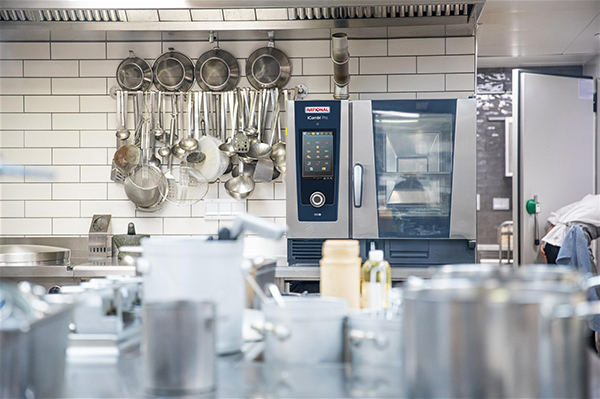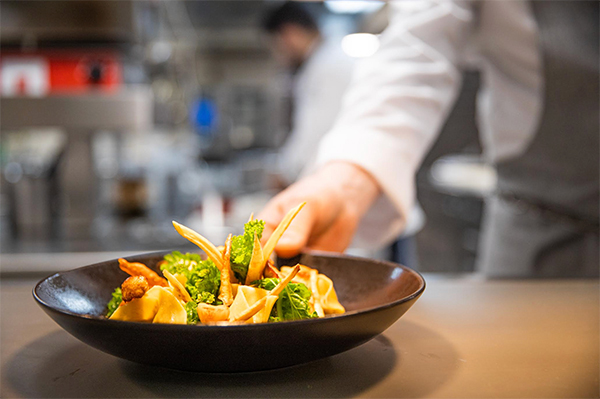Electricity or gas? Which combi oven does a professional kitchen need?

The choice of cooking systems is crucial when building or converting a professional kitchen, as it affects food quality, time management and costs – and ultimately, success. It is not only necessary to consider which equipment will soon be in use, but also how it will be powered: gas or electricity.
As RATIONAL, the expert in thermal food preparation, has also pointed out on its website, a combi oven can certainly make a difference in terms of investment, consumption and sustainability.
Costs of acquisition
The acquisition cost is surely an important decision-making criterion in the hospitality industry. Gas appliances are about 10% more expensive than electric ones in the case of combi ovens. This is simply because the design is more robust and elaborate for gas appliances than for electric ones.
Consequential costs
Here too, there is a difference between electric and gas units: A gas model requires a gas connection, which is not always available. In addition, a larger supply and exhaust air volume is necessary, resulting in higher ventilation energy costs over the entire service life. However, adequate ventilation must also be planned for an electric combi oven. Of course, there must also be enough electrical energy available.
Energy costs
In some countries, gas is significantly cheaper than electricity. This can off set the additional costs incurred at the time of purchase and throughout the cooking system's service life. It is worthwhile to make a detailed comparison. It should also be noted that a consistent power supply is not guaranteed in all countries, making a gas appliance a better choice. Of course, the total connected load of all cooking systems also plays a role. Sometimes this is so high that some cooking systems have to be operated using gas instead.
Installation site
A professional kitchen needs to be well planned: Efficient working routes, logical processes and the flexible use of available space are just a few of the criteria. In terms of working routes and kitchen processes, gas and electric appliances are no different; both are based on combi oven technology. However, the electric device has a head start when it comes to flexibility of use. This is because an electric appliance can be installed wherever there is a power and water connection. This makes it possible to use a combi oven as a mobile cooking system, for example.

Applications
All RATIONAL combi ovens are based on the same technology, making them suitable for a variety of applications, including frying, baking, steaming and grilling. However, if you are using the gas cooking system for special applications such as low temperature cooking or overnight cleaning, you should keep in mind that the ventilation must always be running. It is certainly worthwhile weighing up the effort and costs here.
Maintenance
Of course, a combi oven requires regular maintenance. The prescribed maintenance intervals may vary from country to country, but a guideline from RATIONAL is to have an electrical appliance checked once a year by a service partner to ensure that it is ready for operation. A qualified person should inspect a gas appliance twice a year.
Environmental aspect
As sustainability becomes an increasingly important consideration in the hospitality industry, it must also be taken into account when evaluating gas and electric appliances. Electrical appliances perform better when powered by green electricity. However, if the electricity is produced from fossil fuels, a gas appliance can be the more environmentally friendly choice in terms of CO₂ emissions due to the efficiency levels involved in the production chain. The gas units of both the iCombi Pro and the iCombi Classic are H2-ready. This means that combi ovens can continue to benefit without restrictions if an energy supplier adds up to 20% hydrogen to its gas.
Food quality
All RATIONAL combi ovens meet the highest standards, including those relating to food quality. Whether you work with a gas or electric appliance makes no difference.
Summary
Whether to use a gas or electric appliance largely depends on the availability of an energy source that offers good value for money. With a RATIONAL combi oven, you can be sure of food quality, reliability and ease of use, whether you opt for an electric or gas model.
Further information and comparison options can be found at rational-online.com.
7th October 2025















